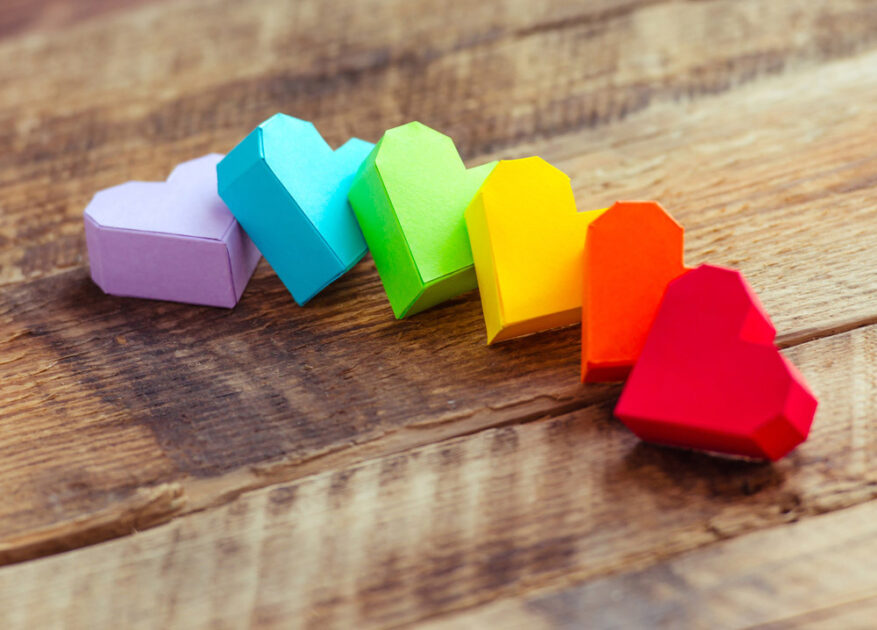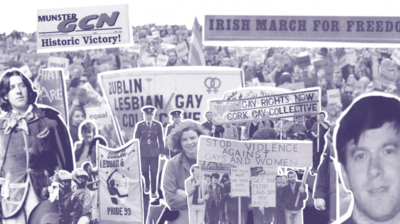Understanding the stages and process of coming out
Coming out isn’t a once off event but a process which happens over time.

Coming out is the process of accepting your sexual orientation (for example gay, lesbian, bisexual, queer or something not defined) or gender identity (such as transgender or non-binary) and being open about that with other people. Accepting your sexual orientation or gender identity can be a long process. Most people are raised to believe they will be straight and cisgender, so when you start to realise that you’re not, it can take some time and work to accept this. Although LGBTI+ people are often grouped together, the experience of exploring your gender identity and coming out as trans or non-binary can be very different to coming out about your sexuality.
The stages of coming out
Coming out isn’t an event on a single day but is a process which will happen over time. Although it can differ from person to person the stages of coming out are usually discovery, acceptance and integration.
Discovery
Discovery is the stage where you begin to recognise your feelings and question whether you could be lesbian, gay, bi-sexual, transgender, non-binary or something else altogether. There is no time frame in which discovery takes place and it can happen at any age in life.
Acceptance
Acceptance is when you start to accept either your sexuality or gender identity and normally feel ready to begin telling people about it in your life. Although you may feel ready to tell certain people, this does not mean that you have to tell everyone and you shouldn’t feel rushed to ever share your gender or sexual identity with someone until you are ready.
Integration
Integration will take different forms from person to person but this is normally the time when you feel comfortable in expressing your sexual identity through being in a relationship or integrating into the LGBTI+ community. If you are transgender or non-binary at this stage you may begin to transition, change your name and ask people to address you by a different pronoun.
Coming out over time
Although you may come out to family or friends at a certain stage in life, as you enter into new situations during your life you may choose to come out to different people again.
Coming out is an important experience and something everyone should be able to do in their own time. Although someone may have told you about their sexuality or gender identity it is important not to share this information with other people unless the person involved has given you permission. You may have good intentions but “outing” someone to friends, family or strangers can be hurtful experience and is a violation of a person’s privacy.
Coming out and defining your sexuality
Many people feel that although they are ready to come out, they don’t feel they fit any particular label such as gay or lesbian. When you are coming out it is important not to feel forced to identify as anything in order to please other people. What we identify as can also change over time and although you might originally identify as gay or lesbian you may find that this can change to bi-sexual or vis-versa. In the case of gender identity you may be non-binary and identify with neither male or female.
Support for coming out
Coming out is a big step in life and during the process you may go through a range of different emotions. At times you might feel frightened, nervous, stressed, relieved or excited and although it can be difficult these emotions are experienced by most people. Regardless of how you feel there are supports countrywide that can help.
LGBT Ireland is a national support service for Lesbian, Gay, Bisexual, and Transgender people and their families and friends. They provide non-judgmental, confidential listening and support, seven days a week.
You can contact them on both their telephone helpline on 1890 929 539 and through their instant messenger service.
Peer support services
LGBT Ireland also offer peer support services around the country where people can come together on a monthly basis and provide practical and emotional support to one another.
TENI, the Trans Equality Network Ireland, also offer peer support services around Ireland. You can find more information about their services here.
Need more information?
We are here to answer your questions and talk through your options. Our online chat service is for 16 to 25 year olds and is available Monday to Friday, 4pm to 8pm. Chat to us now about your situation.
- Chat now to a trained Youth Information Officer
- Or leave us a message and we will email you back






